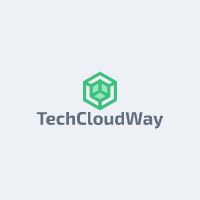Do you know how blockchain technology can be used beyond cryptocurrency? If not, this blog is for you.
Since it has been around for over a decade, blockchain technology has many applications outside the cryptocurrency space. Transparency, security, and decentralization are some of its primary characteristics, making it desirable to various businesses. This blog will thoroughly examine blockchain technology and its application, uses, and architecture.
Join us to learn more about how blockchain has transformed various sectors!
The Concept and Functionality of Blockchain
It is very evident that blockchain technology is a game-changer in the world of data management and exchange. It is a digital ledger that records transactions decentralized, revolutionizing data management. Each block in the blockchain contains digital information, transactions, and a unique identifier, ensuring transparency and traceability. These transactions are verified and added to the chain through consensus algorithms, making the blockchain tamper-proof and secure.
One of the key features of blockchain technology is its ability to ensure data immutability, preventing unauthorized modifications. Additionally, blockchain’s smart contracts automate and enforce contract terms, providing efficiency and trust in various industries. From a business perspective, blockchain applications extend beyond cryptocurrencies, offering solutions for supply chain management, healthcare, and more.
1. The Role of Blockchain in Cryptocurrency Generation
Blockchain technology employs consensus algorithms to generate cryptocurrencies, such as Bitcoin. Miners in blockchain networks utilize computational power to solve intricate mathematical problems, and as a reward for their successful efforts, they receive newly generated cryptos.
The decentralized nature of blockchain ensures fairness, transparency, and security during cryptocurrency generation. By decentralizing financial transactions, blockchain reduces dependence on traditional institutions. This shift towards cryptocurrency generation on blockchain platforms has transformed the scenario of financial transactions over the years.
2. The Impact of Cryptocurrency on Blockchain Adoption
Cryptocurrencies like Bitcoin, Tether and others have played a significant role in popularising blockchain technology. The financial sector has shown immense interest in blockchain because of its association with cryptocurrencies. The innovation sparked by cryptocurrencies has expanded the application areas of blockchain development.
Moreover, the global adoption of cryptocurrencies has facilitated the expansion of the blockchain network, creating a network effect.
The Architecture of Blockchain Systems
Blockchain systems are composed of different elements, such as nodes, transactions, blocks, and consensus mechanisms. Nodes are essential in maintaining, validating, and propagating transactions across the network. These transactions are grouped into blocks, forming a chain of information.
Consensus mechanisms ensure agreement on the validity of these transactions before they are added to the blockchain. The architecture of blockchain systems is built upon principles like peer-to-peer connectivity, decentralization, and data transparency, contributing to the integrity and security of the network.
Core Components of Blockchain Architecture
Blockchain architecture incorporates several core components to ensure secure and transparent transactions. The decentralized network of computers stores and verifies transactions, eliminating the need for intermediaries. The blockchain ledger, distributed across multiple nodes, guarantees data integrity and immutability. Consensus algorithms, like proof of stake or proof of burn, enable agreement on the state of the blockchain. Transactions are grouped into blocks and linked using cryptographic hashes, forming the blockchain. Additionally, smart contracts automate transactions based on predefined rules. With these components, blockchain technology revolutionizes various industries from a business perspective.
Smart Contracts and Decentralised Applications (DApps)
Smart contracts act as self-executing digital contracts that automatically enforce terms and conditions. By eliminating intermediaries, they reduce costs, increase transparency, and enable peer-to-peer transactions.
Decentralized applications (DApps) leverage the power of blockchain technology to provide services without intermediaries. These applications run on blockchain networks, ensuring transparency, security, and data integrity. When writing smart contracts for the Ethereum blockchain, Solidity, a popular programming language, is commonly used. This combination of smart contracts and DApps has opened up new possibilities and use cases beyond cryptocurrency.
Understanding Smart Contracts
Smart contracts, a form of digital agreements, automatically execute contract terms once predefined conditions are met. They offer transparency and trust as they are self-verifying, self-enforcing, and tamper-proof. Smart contracts utilize blockchain technology by providing the benefits of decentralization, immutability, and transparency.
With various use cases like supply chain management, financial services, and intellectual property rights, smart contracts have revolutionized multiple industries. For security, it’s crucial to audit smart contract code, ensure proper data validation, and implement access controls. Embracing smart contracts unlocks new possibilities for businesses from a different perspective, enhancing efficiency and reducing costs.
The Power and Potential of DApps
DApps, or decentralized applications, harness the power of blockchain technology to provide transparent and censorship-resistant services. By eliminating intermediaries, DApps reduce transaction costs and enable peer-to-peer transactions. These applications have many use cases, from digital identity management to supply chain transparency and financial services. One of the key benefits of DApps is that they allow users to retain control over their personal information by enhancing privacy and data ownership. Adopting DApps can drive innovation, decentralization, and democratization of services.
Diverse Applications of Blockchain Technology
Blockchain technology is revolutionizing various industries beyond cryptocurrencies. It enhances data privacy, interoperability, and supply chain transparency in healthcare. With blockchain, supply chain management becomes transparent, secure, and efficient, reducing fraud and counterfeiting. Asset management benefits from its decentralized nature, including real estate, intellectual property, and mutual funds. Blockchain-based financial services like cross-border payments, remittances, and peer-to-peer lending offer efficiency and transparency. With diverse applications in different sectors, blockchain transforms how we conduct business in the digital age.
In healthcare, blockchain technology enhances data privacy, integrity, and patient-centric healthcare solutions. It enables traceability, transparency, and authentication of products in supply chain management. Asset management benefits from blockchain’s transparency, efficiency, and fractional ownership, including real estate, intellectual property, and mutual funds. Additionally, blockchain offers asset tokenization, enhancing liquidity, accessibility, and transparency of assets. This technology can potentially revolutionize digital rights management, royalties, intellectual property, and monetization. With its wide range of applications, blockchain is set to transform the healthcare, supply chain, and asset management sectors.
Blockchain technology offers innovative solutions in copyright protection, IoT, and advertising. By creating a decentralized registry of ownership, blockchain can protect copyrights effectively. Additionally, it enables secure communication and data exchange between devices in the Internet of Things, ensuring the integrity and privacy of information. Blockchain provides ad delivery and verification transparency in the advertising industry, combating fraud. Furthermore, blockchain-based platforms facilitate secure supply chain management, tracking products from origin to destination. Governments can utilize blockchain for secure voting systems, ensuring fair and transparent elections.
The Final Say
Blockchain technology has revolutionized the digital landscape and has applications far beyond cryptocurrency. Its decentralized nature, immutability, and transparency make it a powerful tool for healthcare, supply chain, asset management, copyright protection, IoT, and advertising.
It can transform all sectors by increasing efficiency, security, and trust. Understanding blockchain’s fundamentals, interactions with cryptocurrencies, consensus methods, design, smart contracts, security precautions, and applications is essential as we investigate its possibilities. We can give the industry a more safe, more transparent, and more productive future by utilizing blockchain technology.


